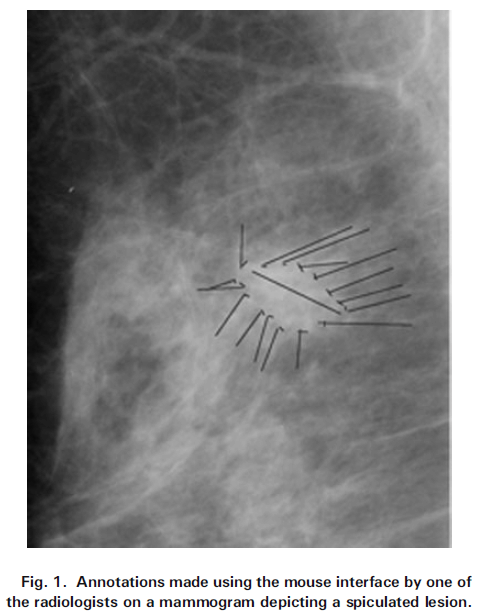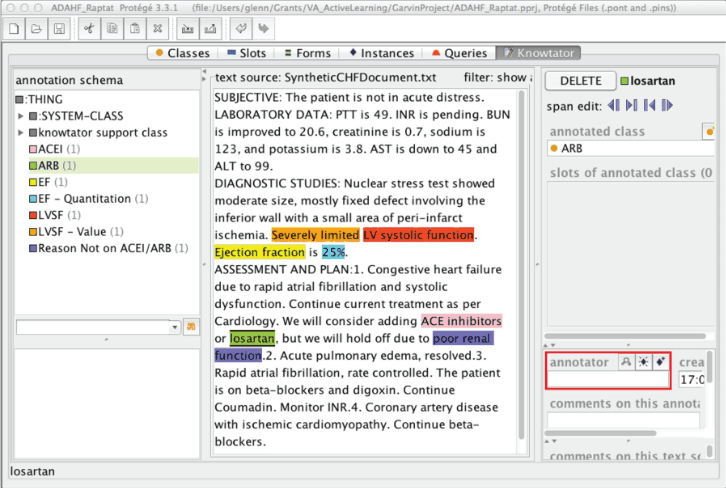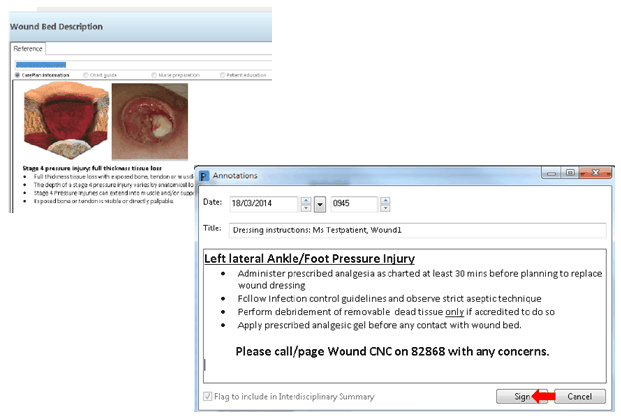This wiki has undergone a migration to Confluence found Here
Observation, Clinical Assessment and Clinical Annotation
Revision as of 00:55, 3 January 2015 by StephenChu (talk | contribs) (→Examples of Clinical Assessment)
Return to: Patient Care
Return to: FHIR Patient Care Resources
Contents
Background
An email in mid December 2014 raised the question of clinical annotation:
- "Is it ClinicalAssessment the best way to model a clinical annotation instead of Observation?"
A number of email exchanges that followed showed the non clinical community appeared to have considerable confusion over the three concepts: observation, clinical assessment and annotation.
This wiki page is intended to provide some clarity from the clinical perspectives to help resolve the confusion.
Observation
Definitions
- Observation:
- - Dictionary definition: "the act of watching somebody/something carefully for a period of time, especially to learn something"
- - Source: http://www.oxfordlearnersdictionaries.com/definition/english/observation
- Clinical:
- - Dictionary definitions:
- - Relating to the bedside treatment of a patient or to the course of the disease
- - Relating to the observed symptoms and course of a disease
- - Source: http://medical-dictionary.thefreedictionary.com/clinical
- Clinical observation:
- - Definition:
- "the act of watching and obtaining information about a patient's clinical status including signs, symptoms, and course of a disease"
- - HL7 Perspective:
- In HL7 the "observation" ACT is actually the "act of documenting results of observation"; as such, the value that is captured in the HL7 observation is semantically equivalent to "observation result"
Examples of clinical observations
- "Clinical observations [examples] include estimation of:
- - haemoglobin-oxygen saturation (SpO2, pulse oximetry), oxygen therapy
- - respiratory rate
- - heart/pulse rate
- - blood pressure (systolic, diastolic and mean)
- - temperature (including measurement method)
- - sedation and pain levels.
- In certain clinical circumstances further observations (for example neurological) may be required"
- - Source: http://www.rch.org.au/rchcpg/hospital_clinical_guideline_index/Observation_and_Continuous_Monitoring/
Related Topic
Clinical Assessment
Definitions
- Dictionary Definition:
- - Clinical assessment is "an evaluation of a patient's physical condition and prognosis based on information gathered from physical and laboratory examinations and the patient's medical history".
- - Source: http://medical-dictionary.thefreedictionary.com/clinical+assessment
- Definition (as discussed at 2014-10-09 conference call)"
- - Clinical assessment is defined as the "Process to arrive at the status (including the clinical impression of health risk or prognosis) of a patient constrained by their health concerns"
- - The process includes
- ~ The use of observation findings/results as determined by relevant systemic (e.g. CVS, respiratory, neurological) examination of the patient
- ~ Measurement or observation results from use of prescribed set of standardised assessment protocols/instruments (e.g. APGAR, Glasgow Coma Scale, Mini-Mental State Examination)
- (- it is important to note that "assessment protocol/instrument" is part of the clinical assessment process and not the clinical assessment itself)
- - The actual observations represent the "S" and "O" of the SOAP documentation
- - The "A" in the SOAP is the documentation of the clinical analysis and reasoning or thought process based on the "S" and "O" findings of the patient's status
- - The assessment reflects the conclusion of the reasoning process (which also identifies how the conclusion was reached)
- Clinical Assessment Tool:
- - A clinical assessment tool is an instrument or a set of measurements designed to evaluate a patient's clinical condition and/or to predict the risk(s) or prognosis. The measurement parameters/variables may be organised/presented as questionnaire, checklist, or scale.
- - Examples:
- - Fracture Risk Assessment Tool (developed by the World Health Organisation Taskforce)
- - Standardized Mini Mental State Examination (SMMSE)
- - Barthel Index
- - International Resident Assessment Instrument (InterRAI)
Examples of Clinical Assessment
- Clinical Assessment of Chest Pain:
- - The clinical assessment of chest pain involves use of the following information:
- ~ Aetiology of pain (e.g. mechanism of injury), if identifiable (clinical history, physical examination: Observation)
- ~ Location/distribution of pain (Observation)
- ~ Severity/magnitude (use of pain assessment scales: Observation
- ~ Quality/characteristic (Observation)
- ~ Contributing/aggravating/associated factors (clinical history, physical examination: Observation)
- ~ relieving factors (clinical history, physical examination: Observation)
- ~ ECG/EKG findings (Observation)
- ~ Blood test (cardiac enzymes) results (Observation)
- ~ X-ray chest findings (where appropriate) (Observation)
- ~ Family history (Observation)
- ~ Clinical reasoning (assessment): how likely is this a case of
- - acute myocardial infarction?
- - pleurisy?
- - indigestion
- ~ Result of clinical reasoning:
- - diagnosis
- - differential diagnosis
Related Topic
- Clinical Assessment (including clinical storyboards)
Clinical Annotation
Definitions
- Dictionary Definition of Annotation:
- - "A note by way of explanation or comment added to a text or diagram"
- - "The act or process of furnishing commentary or explanatory notes"
- - "An annotation is metadata (e.g. a comment, explanation, presentational markup) attached to text, image, or other data"
- Clinical Annotation (of paper clinical notes or digital images):
- - A note or commentary added to a patient's clinical information (document or image) to explain or add new information.
- ~ A note or commentary may also be added to correct a previously recorded information.
- ~ Image annotation may include markings (to show region/area of interest) and/or commentary
- - Note: Annotation of clinical information is a relatively common practice in the paper clinical record. The annotation is initialized or signed by the person who adds the annotation. A radiologist may also annotate a diagnostic image/imaging report.
- Annotation of narratives in EMR:
- - Electronic tagging of narrative contents in EMR to facilitate efficient and high accuracy data retrieval and analysis
Examples of Clinical Annotation
- Annotation of Prescription (an Australian example):
- - In Australia, when a patient is registered for the "closing the Gap" (CTG) program and the prescriber wants to grant the benefits of the CTG to the patient, the prescriber will annotate the patient’s prescription to indicate that it is to be dispensed with co-payment relief. CTG prescriptions will either have an automated annotation or a manual annotation
- - Source: http://www.medicareaustralia.gov.au/provider/pbs/pharmacists/closing-the-gap.jsp
- Annotation of Digital Image (a digital mammography example):
- Annotation of Clinical Narrative in EMR:
- Annotation of Image in EMR (a pressure ulcer example):


